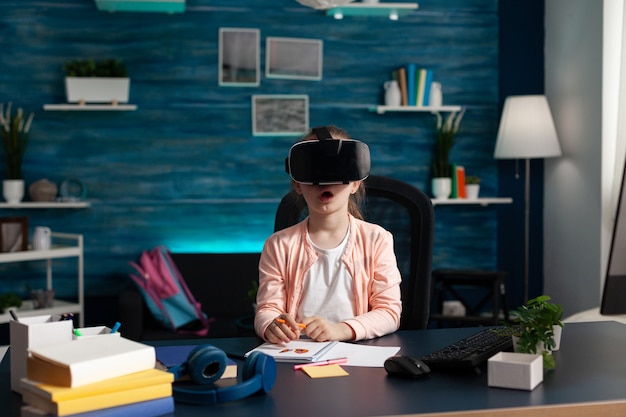Gaming in Education is transforming how students engage with learning. By integrating interactive gameplay and educational content, schools and learning platforms are creating immersive environments that make knowledge acquisition exciting and effective. From early childhood classrooms to university-level courses, gaming is no longer just a leisure activity—it’s a tool that can shape the way learners think, collaborate, and problem-solve.
Take the example of a high school in California where students used a simulation game to learn about environmental science. Instead of traditional lectures, they managed virtual ecosystems, monitored species populations, and faced real-life challenges like pollution and climate change. This hands-on approach helped students understand complex concepts more deeply and retain information longer than conventional methods.
How Gaming Transforms Traditional Learning
Traditional learning often relies heavily on textbooks and lectures, which can sometimes disengage students. Gaming in Education introduces a dynamic way of learning where students interact directly with content. Gamified modules encourage exploration, critical thinking, and creativity. For instance, mathematics learning platforms now feature adventure-based games where solving equations unlocks new levels, rewarding students for problem-solving and persistence.
Furthermore, gaming allows immediate feedback. Students can see the consequences of their choices in real-time, helping them learn from mistakes without fear of judgment. This approach reduces anxiety around failure and encourages experimentation—a key component of effective learning.
The Rise of Educational Platforms Using Games
Modern educational platforms are embracing gaming mechanics to enhance engagement. Platforms like Kahoot!, Quizizz, and Classcraft integrate quizzes, points, and competitive elements to make learning more interactive. In higher education, simulation-based platforms are used in fields like medicine, engineering, and business to replicate real-world challenges.
For example, medical students now practice surgical procedures in virtual reality environments before entering operating rooms. These simulations provide realistic scenarios where students can refine their skills safely, blending practical experience with theoretical knowledge.
Gaming and Collaborative Learning
One of the most compelling aspects of Gaming in Education is its ability to foster collaboration. Multiplayer educational games encourage teamwork, communication, and leadership. Students learn to strategize together, solve problems, and support one another in achieving shared goals.
A study conducted in the UK found that classrooms using multiplayer strategy games saw improvements in social skills and peer learning. Students reported feeling more connected to their classmates, and teachers observed increased participation among those who typically struggled in traditional settings.
Personalization and Adaptive Learning Through Games
Games offer personalized learning experiences that adapt to individual students’ abilities and pace. Adaptive gaming platforms analyze student performance and adjust difficulty, challenges, and content to match learning needs. This approach ensures that students remain engaged without feeling overwhelmed or bored.
In a recent pilot program, a school district in Canada implemented adaptive math games for students struggling with arithmetic. Over six months, the program resulted in a significant improvement in both confidence and test scores, demonstrating how gaming can provide tailored educational support.
Real-Life Success Stories
Many institutions are already seeing measurable success with gaming-based education. In Singapore, a program called “Math Adventures” transformed how elementary students approached problem-solving. Students navigated story-based worlds, solved puzzles, and earned rewards, which increased classroom engagement and fostered a love for learning.
Similarly, in the United States, a history curriculum integrated a game where students built virtual civilizations. They had to research cultures, trade resources, and make policy decisions, blending historical knowledge with critical thinking and decision-making skills.
Challenges and Considerations
Despite the benefits, integrating Gaming in Education comes with challenges. Schools need proper infrastructure, trained educators, and well-designed game content to ensure meaningful learning. There’s also a need to balance screen time and prevent gaming from becoming a distraction.
However, when implemented thoughtfully, the advantages outweigh the drawbacks. Games can motivate, engage, and equip students with skills that extend beyond the classroom, including digital literacy, strategic thinking, and collaboration.
Future of Gaming in Education
The future of education is increasingly intertwined with gaming technologies. Virtual reality (VR), augmented reality (AR), and AI-driven games are opening new possibilities. Imagine history classes where students explore ancient civilizations in VR or biology lessons where students manipulate molecules in a 3D environment.
As these platforms evolve, educators will continue to develop hybrid models combining traditional instruction with immersive gaming experiences. Gaming in Education will increasingly become a mainstream method, inspiring students and educators alike to rethink how learning happens.
Global Impact and Accessibility
Worldwide, gaming-based learning is reaching diverse communities. From rural schools in Africa using offline educational games on tablets to urban classrooms in Europe leveraging cloud-based platforms, the accessibility of gaming tools is expanding. Organizations are focusing on creating inclusive content that caters to different languages, learning styles, and socioeconomic backgrounds, ensuring a broad reach and meaningful impact.
Read also:
mexico vs honduras pacific time
portugal national football team vs denmark national football team timeline
which greblovz2004 should i start with
xbox cloud gaming beta
xbox cloud gaming (beta)

